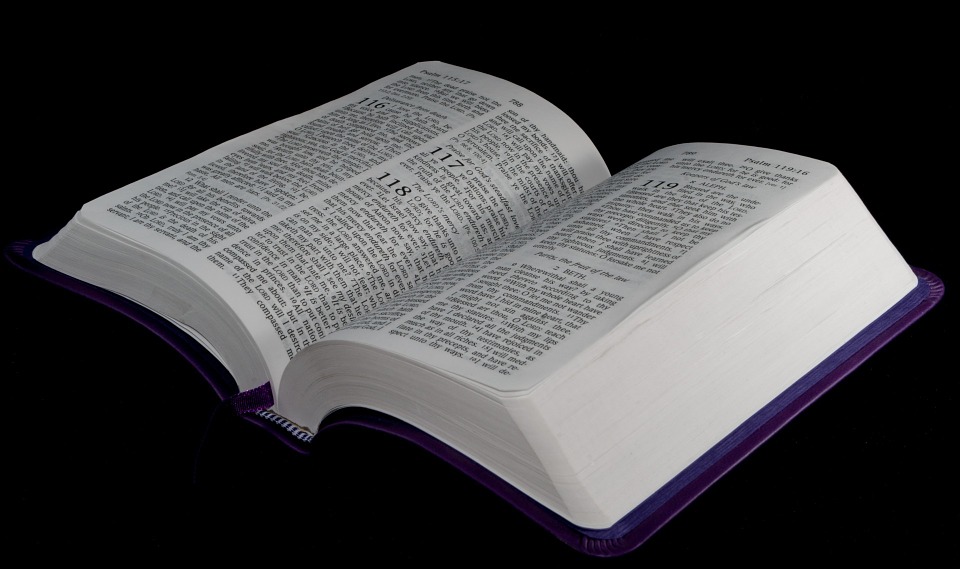


After the strobe light anxiety-triggering-mind-numbing results of the election, I remembered an episode of “Preachers of Detroit,” a reality show about ministers and their families that aired on Oxygen in 2015. In season one episode two, there was an exchange between Bishop Corletta J. Vaughn and a group of young women at a luncheon she held in an attempt toward building female community. When I saw this episode I immediately transcribed it (you’re welcome), because I wondered how it would play out in the 2016 election:
Bishop Vaughn: So would you vote for a female president?
Woman 1: Personally, I don’t think I would.
Bishop Vaughn: Because?
Woman 2: Are you kidding me? We fought so hard for women to be equals!
Woman 1: Not to say that a woman is meeker or whatever, but I just feel like that’s something a man does.
Woman 2: Do you think that’s playing on the stereotypes though that women can’t be independent?
Woman 1: No, no I am all for independency, don’t get that wrong, I’m just…it’s just what it is.
Bishop Vaughn: You said a woman should not be the president because it was a man’s job. I’m wondering if that is the mindset of the younger generation?
Woman 2: It might be!
Woman 3: It’s not a mindset, it is just what has always been.
Bishop Vaughn: Wow! That is an amazing response. That set women back 500 years. We’ve got to change that.
I am not casting any blame at all at these young women for their points of view; they have every right to believe as they do. My issue is how renderings of biblical mandates about women’s roles are presented as ‘law’ and ‘fact’ and not as ‘interpretative option.’ All of biblical exegesis is an interpretative option. Someone made decisions about what Aramaic, Hebrew and Greek words meant, often by committee, and how they would be translated into English. And we can see who benefits from that. The 2016 election is a perfect opportunity to demonstrate what happens when biblical narratives about women that were likely both written by men but more importantly, interpreted by men, are used as a primer for women’s roles in contemporary society.
Nothing illustrates this better than Proverbs 31, because so much of how we understand wifely Christian roles stems from this text of an upper echelon woman in the ancient world that is presented to us as the ideal wife…after all, she is more precious than jewels. She buys property and sells things, she works from can’t see in the morning to can’t see at night, she takes care of her family, and it all sounds achingly familiar…she seems to be the precursor for the June Cleaver model of happy homemaking.
Proverbs 31 sounds a lot like what certain people who voted in the 2016 election wanted to turn America back to, nostalgic for the era when the husband worked and the wife stayed home and took care of the family. In fact, many believe this plus Jesus is the Christian model of family dynamics. Never mind the fact that it is wholly impractical in contemporary society, where the vast majority of American households require two incomes just to keep their ends on speaking terms, much less making ends meet. So there is that. Not to mention the impractical option of having servants, as the Proverbs 31 superwoman does (v. 15).
Let’s press the pause button for just a second and think about the implications of a biblical model of marriage modeled after an ancient woman with servants who works from can’t see in the morning to can’t see at night, buying property, planting vineyards, and woolin’ distaffin’ flaxin’ and all coolin.’ Let’s consider for a second who it is that benefits from a model of Christian family dynamics where the husband and children are exempt from assisting her. Did you notice that no one in this family is helping her? Not a single member of this family is pitching in, or contributing one iota to the household they live in. Why aren’t they helping her? Why is she doing all the work? And did you also notice that the woman described in Proverbs 31, the one who dresses in strength and honor couture, says exactly nothing in this entire passage? We are left to assume that she was happy and blessed doing all the damb work. And I’m side eye-ing the heck out of that. This passage has been used to oppress women and promote anti-working woman narratives.
But there is more. Think about the expectation in many churches, that these same women who are doing everything for their families, should come and perform the same tasks for the church. For free. I have had conversations with young women who have stopped attending the churches of their families because they got sick and tired of being expected to be on clean-up duty just by being present, and never being asked to donate their time.
The implied expectation of free labor is just one way this text can be oppressive. Another way is the way it depicts the woman who is married and raising children as worthy to be praised. But what does that say to those women in the pews who are not married? Those women who choose not to marry or bear children? Those women who cannot bear children? Those women who are same gender loving? Elevating the status of married women in church is a problem in particular for Black women in America whose marital status is constantly under scrutiny, who are persistently exposed to think pieces musing about our ‘unmarri-able’ status by spouting off statistics about how less likely black woman are to even get married, or that Black men will choose them to marry. Hang in there, self-esteem!
Misogynoir speaks to the unique oppression that Black women in America experience; it is the conflation of racism and sexism and other -isms that add up to micro- and macro-aggressions Black women experience on the regular. I believe all the marital status bashing black women experience in this country is itself a form of misogynoir, and many of us get our first tastes of this in Sunday school, learning how to be a Christian wife, being told to keep our knees together and wait to be chosen. We hear teachings from the Bible about women that we assume must be not only true, but also must have been let down from heaven on a scroll from God, and we internalize and embrace second-class status.
This is how some readings of the Bible can be harmful; when women are expected to live up to models that never considered our own experiences; rather, it just prescribed them and said this is what you should be living up to. Without any context. And too many black women are killing themselves trying to contort and bend themselves into spaces never meant to hold them. Patriarchal readings of Scripture imply all women should be made happy by the same things. Patriarchy itself loves nothing more than a biblical text that can be used to silence women, because patriarchy is all about men running things without question, without complaint, without checks and balances, without considering the impact of actions upon others, and keeping women in competition mode.
Patriarchy says, “I will impose my will on you and you will like it.”
My feminism says, “I have the right to define my own reality and identity and you can keep your judgment about it.”
The role of a godly wife should be not negotiated by how any particular man (or woman) reads Proverbs 31. That role should be negotiated by that husband, that wife, and their mutual relationship with God. Patriarchal reading of Proverbs 31 can make churched women put up with all kinds of crap just to get a new last name, because churches offer little else affirming for women that does not revolve around being someone’s wife or mother. Many women accept doing all of the household chores without any assistance because they believe that to be the cost of wifedom. And many Black men believe they are entitled to have wives who make no demands that they help around the house. Please be clear, there are many women who raise their sons to expect this.
The problem is the expectation that in contemporary society, the lived reality for many Black women is that their incomes and credit scores are vital to the economic success of their household whether they are married or not. And the problem is not the desire to be married or being a wife! There is nothing wrong with wanting to be married, or wanting to have children. The problem is limiting our value as women solely to the titles of “wife” and “mother” as though they were the only gateways to female content. If wifedom and motherdom and doing all the household chores without assistance were God’s prescription for female happiness, why aren’t all women made happy by them?
By making women feel as though their worth is contingent upon two, and only two titles, many churches are engaging in misogynoir: imposing limits as a means of shunning and silencing the Black women who sit in church pews who wish they had some help but all they are hearing from the pulpit is that they are the help.
Many churched Black women have been exposed to teachings about feminine roles that made them feel left out, disenfranchised, and judged for their station in life. Black women are tired of this. Yes I will get in formation for my sistren, even if I have to do it alone, but to quote Nayyirah Waheed, “all the women in me are tired.”
I am tired, but I will resist Bible readings that do not make Black women’s experiences a priority. I am tired, but will continue to yank the slack out of any theology that makes any one question whether or not they are not made in God’s divine image or treats all women as though we all think and want the same things.
I am tired. But the work remains. I will continue to remind myself that there is Divinity in my melanin, and I hope you do too. Please remember that you have value to God whatever your station in life is, even if it is not on the wife and mommy track, and even if you did them out of order. Remind yourself often that this mythical, fantastic, perfect wife described in Proverbs 31 has been used to socialize us into being like her, and that has often been used against us. Just ask Sec. Hillary Rodham Clinton about that.
1 Comment